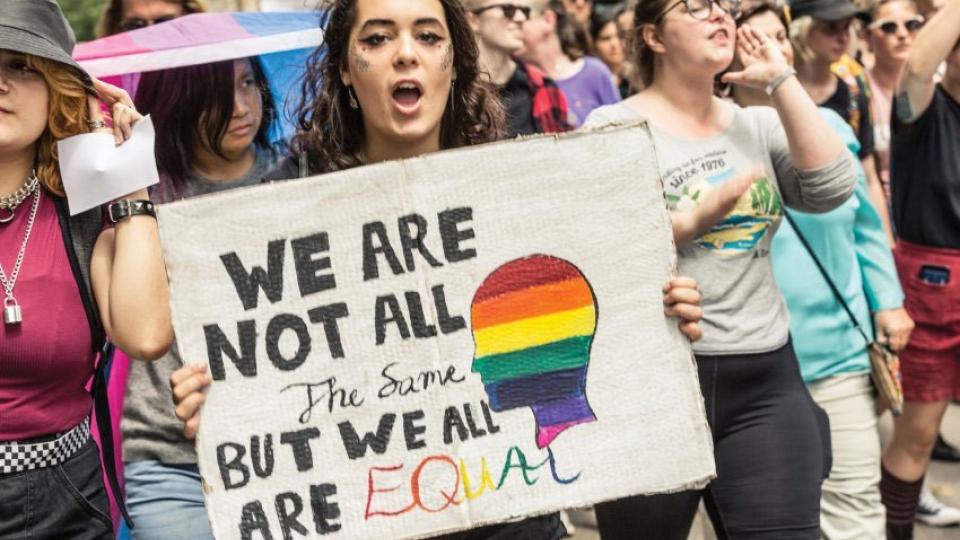No to religious discrimination

As people were fleeing their burning homes and volunteer firefighters were crowdfunding basic supplies in December, Australia’s Pentecostal Prime Minister was busy promoting his so-called religious freedom bills.
Scott Morrison was keeping his eye on the main prize: how to safeguard the ability of a handful of bigoted institutions to discriminate.
Despite the package of three bills — which have a progressive-sounding name — they are the Coalition’s counter-attack following the successful 2017 same-sex marriage plebiscite in which 62% voted in favour.
Then PM Malcolm Turnbull said his government would respect “the will of the people”. But within a week he announced a religious freedom review to be chaired by former Coalition MP Phillip Ruddock, the same person who in 2004 spearheaded amendments to the Marriage Act that excluded same-sex couples, prompting the beginning of the mass campaign for same-sex marriage.
Disgruntled homophobes in the Coalition were determined to bring in protections for religious institutions that want the right to discriminate: Morrison is the guy to deliver.
This anti-democratic push is taking place despite greater awareness of the extent of sexual assault within religious institutions, their refusal to report abuse and the abusive practice of “gay conversion therapy” (GCT) — the discredited practice of falsely claiming to be able to change a person’s sexual orientation or gender identity or expression.
The government’s agenda on the religious exemption laws is two-fold: hold back progress on LGBTI rights and safeguard the interests of powerful institutions across society.
While the government claims its bills are about protecting the rights of persons and organisations to practice their faith, in fact they are about protecting those seeking to impose their religious beliefs onto others — through exclusion and the denial of services.
Remember when former Coalition Attorney-General George Brandis said “people have the right to be bigots”? These religious freedom bills champion that.
The Guardian collected a few examples of how the changes might make discrimination legal:
- A doctor could tell a transgender patient of their religious belief that God made men and women in his image and that gender is therefore binary;
- A single mother dropping her child off at day care may be told by a worker that she is sinful for denying her child a father;
- A Catholic doctor refusing to provide contraception to all patients or to prescribe hormone treatment for gender transition; and
- A person hiring a live-in nanny or in-home care services may require that they be of the same religious belief or activity as that person.
ACT Chief Minister Andrew Barr was correct in pointing out that the changes legislate for “religious privilege”, not freedom of religion.
The Guardian also noted that federal laws could override a state law that bans the promotion of programs that seek to “convert” LGBTI people, on the basis that it infringes on “statements of belief”.
This is key to GCT, which uses psychological and spiritual means to suppress or change a person’s sexual orientation or gender identity. GCT is legal across all states, with no protections for children and minors.
In 2018, the Victorian health minister referred GCT to the Health Complaints Commissioner, whose report found that most people who underwent a form of GCT experienced significant and ongoing trauma.
Bills to outlaw GCT have now been introduced into the Queensland and Victorian parliaments. They are being supported by LGBTI, medical and human rights groups.
Unsurprisingly, the main opposition is coming from the religious schools and institutions that claim their right to religious practice is being infringed.
Attorney-General Christian Porter has denied claims the Religious Freedom bills will overrule state laws. But their objective is to provide federal protection to those who seek to enforce their own religious views onto others and, in the case of GCT, on children under the age of consent.
Professional bodies and progressive religious organisations have been vocal critics of GCT and religious exemption discrimination.
Marriage equality and the decriminalisation of abortion in NSW show there is a broad agreement that the state should stay out of people’s bedrooms.
But we cannot assume that common sense will defeat this new bigoted push. The homophobes in parliament have not gone away and they have a powerful funding base: religious institutions.
The “right” to discriminate must be defeated, along with the outlawing of practices that shame vulnerable people, especially the young.
Religious persecution is already unlawful. If this package of bills become law, all anti-discrimination law passed in the 1970s on the back of huge social movements will be fair game.
As always, our struggle can only be won in the streets.
[Chris Jenkins is a member of the Socialist Alliance.]